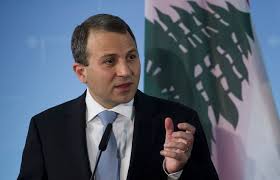
By zeina karam, associated press
Lebanese politicians traded accusations Saturday over the decision by Saudi Arabia to halt deals worth $4 billion aimed at equipping and supporting Lebanese security forces, adding to tensions in the deeply divided country, which is struggling with the fallout from neighboring Syria’s civil war.
The decision was announced by Saudi officials Friday in retaliation for Lebanon’s siding with Iran amid the Sunni kingdom’s spat with the Shiite power. The Gulf Cooperation Council backed the Saudi decision, raising concerns it could have repercussions for thousands of Lebanese living in Gulf countries.
The small Mediterranean country has a sectarian divide that reflects the wider regional split between Sunni and Shiite powerhouses Saudi Arabia and Iran, and has long been a battlefield where the region’s proxy wars play out. The Saudi announcement immediately prompted sharp accusations among Lebanon’s notoriously fractious party leaders.
Former Prime Minister Saad Hariri, a key ally of Saudi Arabia, blamed the suspension on the Shiite group Hezbollah and its Christian ally, the Free Patriotic Movement.
"Fiery statements offending the Kingdom are rejected and do not represent the policy of Lebanon," he said after a meeting with the Sunni grand mufti on Saturday.
The foreign ministry, which is headed by FPM leader Gibran Bassil, shot back in a statement, calling such accusations "cheap attempts at political exploitation."
The Saudi decision came after Bassil declined to support Saudi resolutions against Iran during two meetings of Arab and Muslim foreign ministers. Bassil is the president of the FPM, which is one of the strongest allies of the Iran-backed militant Hezbollah group.
Saudi Arabia and Iran are longtime rivals who back opposite sides in the wars in Syria and Yemen. Relations took a turn for the worse at the start of the year, when Saudi Arabia executed a prominent Shiite cleric and protesters stormed Saudi diplomatic posts in Iran. That prompted Riyadh to cut diplomatic relations with Tehran.
The Lebanese Foreign Ministry statement recalled its condemnation of the attack on Saudi diplomatic missions in Tehran and Lebanon’s long-standing policy of remaining on the sidelines of regional conflicts.
The suspended deals involve a four-year, $3 billion Saudi pledge to buy French arms for the Lebanese military and a $1 billion support deal for the Lebanese police.
In a clear reference to non-Arab Iran, GCC Secretary-General Abdullatif Al Zayani said it was "deeply regretful that Lebanon’s decision-making was now hostage to the interests of a regional power, contradicting Arab national security and the interests of the Arab nation."
The six-nation bloc includes Saudi Arabia, Kuwait, Bahrain, Qatar, Oman and the United Arab Emirates.
Lebanon’s daily As-Safir reported Saturday that the United Arab Emirates will deport more than twenty Lebanese nationals, giving them only 48-hour notice to leave the country. There was no immediate confirmation of the report, and it was not clear if it was related to the Saudi decision.
The Lebanese nationals that are being deported from UAE are from the Awada family
BEIRUT: Lebanon’s Foreign Ministry Saturday defended itself against blame for compromising the $4 billion in Saudi military aid that was announced halted one day earlier.
In a statement, the ministry, headed by Free Patriotic Movement leader Gebran Bassil, said its critics were using the incident to launch "cheap" attacks for "political benefit."
Saudi Arabia in a surprise move Friday announced that it was halting both a $3 billion grant to the Lebanese Army and a $1 billion package to the Internal Security Forces.
Riyadh also said it was reevaluating its relationship with Lebanon in light of positions taken by unnamed Lebanese officials it deemed were not acting in a "brotherly" manner.
Riyadh’s critics, led by Hezbollah, have rejected that reasoning as an excuse to cover up for its deep financial crisis caused by the Saudi-led war in Yemen, and the recent plunge in oil prices.
But Saudi-backed March 14 officials quickly pointed the finger at Bassil over his recent decisions to distance Lebanon from statements issued during meetings in Cairo and Jeddah last month accusing Iran of backing terrorism.
The statement issued at the Cairo meeting also listed Hezbollah, an influential member of Lebanon’s government and FPM ally, as a terrorist group.
Future Movement leader Saad Hariri said Friday he "understood" Riyadh’s decision to halt the aid, blaming Bassil for causing Saudi Arabia "pain" by not getting on board with the statements.
Progressive Socialist Party leader Walid Jumblatt Saturday called on unnamed Lebanese officials to "reconsider their positions" toward Arab states.
March 14 lawmakers Ammar Houri and Marwan Hamade also blamed Bassil for the Saudi move.
In its statement Saturday, the Foreign Ministry said the decisions taken at Cairo and Jeddah were in line with the agreements made between officials at recent national dialogue and Cabinet meetings.
"The recent principled position adopted by the Lebanese government is to not enter into a regional conflict, but to adopt a conciliatory approach," the Foreign Ministry said.
It also noted that the Foreign Ministry had unequivocally denounced any interference in Saudi affairs, as well as the Jan. 2 storming of Saudi missions inside Iran last month by protesters.
Both the Cairo and Jeddah meetings were called on by Riyadh over the storming of the missions in Iran by protesters angered over the Saudi executions of a Shiite cleric.
The Foreign Ministry also called for Lebanese expats living and working in Saudi Arabia to not be affected by the dispute.
"The relationship between the Republic of Lebanon and Saudi Arabia is not a circumstantial relationship linked to fleeting conditions. It is a deep historical relationship based on close ties between the two countries and the two peoples," it added.



